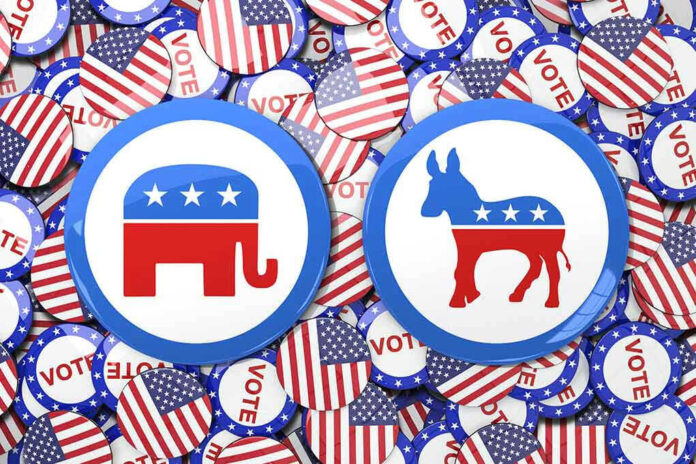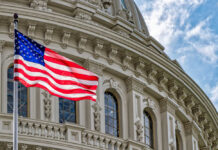
A Pennsylvania election law withstands legal attacks, reaffirming traditional voting processes and frustrating progressive reformists.
Story Highlights
- Activists unsuccessfully attempt to overturn an 88-year-old Pennsylvania election law.
- The Pennsylvania Supreme Court upholds the law against claims of emergency changes needed.
- This decision is seen as a victory for traditional electoral integrity and conservative values.
Activists Challenge Long-standing Election Law
In a recent development, activists launched a legal challenge against an 88-year-old Pennsylvania election law, claiming it required immediate overhaul due to alleged emergency conditions. Despite their efforts, the Pennsylvania Supreme Court ruled against the activists, maintaining the law’s validity. This ruling underscores the importance of adhering to established electoral processes and reflects a broader resistance to hasty legal changes that could undermine election integrity.
The activists argued that the law was outdated and failed to address contemporary voting challenges. However, proponents of the law emphasized its role in preserving the state’s electoral integrity and preventing potential fraud. The court’s decision to uphold the law has been celebrated by conservatives as a reinforcement of traditional values and a rejection of progressive attempts to alter long-standing legal frameworks without substantive justification.
Implications for Conservative Values
This legal victory is significant for conservatives who view such challenges as attempts to erode the foundations of electoral integrity. By maintaining the current law, the court has reinforced the importance of stable and consistent election regulations, which many believe are crucial to safeguarding democratic processes. This decision highlights the ongoing battle between progressive reformists seeking rapid change and conservatives advocating for the preservation of established systems.
The ruling also serves as a reminder of the potential consequences of undermining constitutional principles. Many conservatives argue that frequent legal alterations can lead to confusion, decreased public trust, and unintended policy repercussions. By upholding the law, the Pennsylvania Supreme Court has set a precedent for balancing the need for modernization with the necessity of maintaining constitutional protections.
Future of Election Laws and Political Landscape
The decision by the Pennsylvania Supreme Court is likely to influence similar cases across the country, where activists seek to challenge long-standing election laws. As the political landscape continues to evolve, the tension between preserving traditional legal frameworks and accommodating modern needs will persist. For now, the ruling serves as a testament to the resilience of conservative values and a warning against the unchecked reshaping of electoral regulations.
While the ruling represents a victory for supporters of the 88-year-old law, it also underscores the need for ongoing vigilance in protecting electoral integrity. As debates over election laws continue, it remains crucial for policymakers and citizens to engage in informed discussions about the balance between innovation and tradition in shaping the future of democratic processes.
Sources:
James Hutton Institute – Stakeholder Analysis
IMD – Governance Blog on Stakeholder Analysis
EU Wiki – Stakeholder Analysis
Simply Stakeholders – Guide on Stakeholder Analysis




























